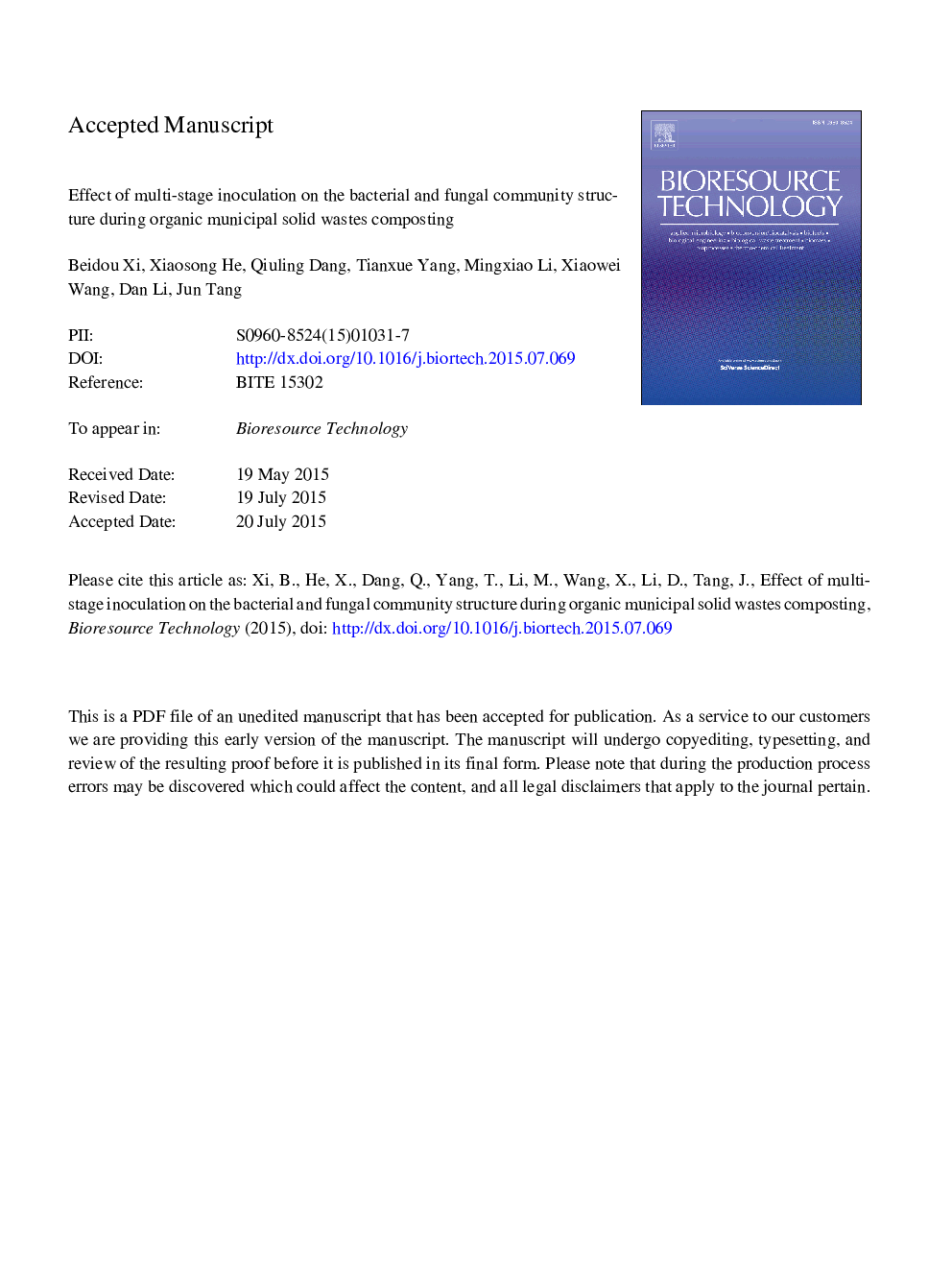| Article ID | Journal | Published Year | Pages | File Type |
|---|---|---|---|---|
| 7073785 | Bioresource Technology | 2015 | 31 Pages |
Abstract
In this study, PCR-DGGE method was applied to investigate the impact of multi-stage inoculation treatment on the community composition of bacterial and fungal during municipal solid wastes (MSW) composting process. The results showed that the high temperature period was extended by the multi-stage inoculation treatment, 1 day longer than initial-stage inoculation treatment, and 5 days longer than non-inoculation treatment. The temperature of the secondary fermentation increased to 51 °C with multi-stage inoculation treatment. The multi-stage inoculation method improved the community diversity of bacteria and fungi that the diversity indexes reached the maximum on the 17 days and 20 days respectively, avoided the competition between inoculations and indigenous microbes, and enhanced the growth of dominant microorganisms. The DNA sequence indicated that various kinds of uncultured microorganisms with determined ratios were detected, which were dominant microbes during the whole fermentation process. These findings call for further researches of compost microbial cultivation technology.
Related Topics
Physical Sciences and Engineering
Chemical Engineering
Process Chemistry and Technology
Authors
Beidou Xi, Xiaosong He, Qiuling Dang, Tianxue Yang, Mingxiao Li, Xiaowei Wang, Dan Li, Jun Tang,
